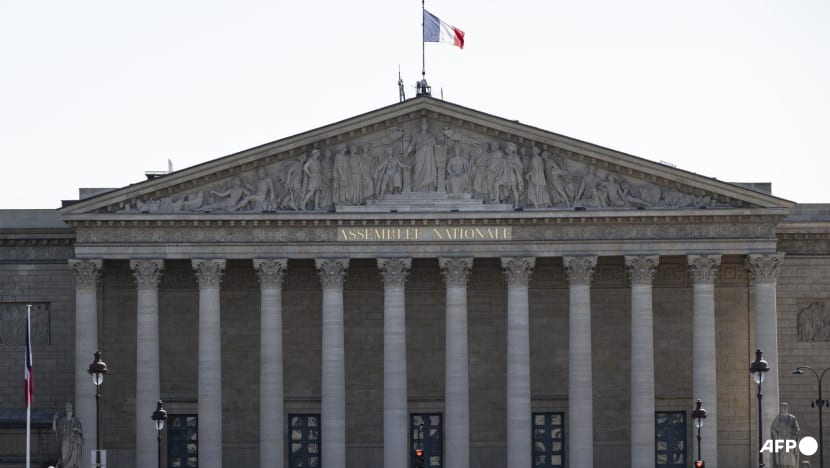Fears of new political crisis grip France

A view of the French National Assembly, the lower House of Parliament, in Paris on Aug 11, 2025. (File photo: AFP/Martin Lelievre)
PARIS: Fears of a new political crisis swept through France on Tuesday (Aug 26) as the minority government of Francois Bayrou appeared likely to be ousted in a crucial confidence vote next month.
France's embattled prime minister stunned the country on Monday, announcing he had asked President Emmanuel Macron to convene an extraordinary session of parliament on Sep 8.
Bayrou needs parliamentary backing for his austerity measures to reduce France's soaring public debt but main opposition parties, from the far-right to the hard-left, said they would not back the prime minister's plan.
The announcement came as calls mounted to stage a nationwide shutdown on Sep 10 to protest against Bayrou's proposed budget cuts.
Government members admitted the prime minister's move was high-risk.
"Yes, we're putting our heads on the chopping block, so what?" said Patrick Mignola, Minister of Relations with the Parliament. "France deserves it."
Political competition is intensifying in France ahead of the crucial presidential election in 2027, when Macron's second term is set to end.
Far-right leader Marine Le Pen said on Monday that parliament should be dissolved, while hard-left firebrand Jean-Luc Melenchon suggested on Tuesday that Macron must resign if Bayrou, 74, loses the vote.
"Macron is chaos," said the head of the hard-left France Unbowed party, adding that he would propose a motion of no confidence against Macron in parliament.
"The issue is Mr Macron. He must go."
Macron, 47, has repeatedly faced calls to resign since dissolving parliament last year after far-right gains in European elections, plunging the country into crisis.
But he has insisted that he will stay on until the end of his term and has also said he wants to avoid dissolving parliament and calling snap parliamentary elections again.
Were Bayrou to be rejected by parliament, it would leave Macron seeking his seventh prime minister and cast a heavy shadow over the remaining two years of his presidential mandate.
"FINANCIAL CRISIS"
Bayrou's predecessor, Michel Barnier, was ousted just after three months on the job. In December, National Rally teamed up with a left-wing bloc to topple his government over the 2026 budget.
After years of overspending, France is on notice to control its public deficit and cut its sprawling debt, as required under European Union rules.
Bayrou wants to save about 44 billion euros (US$51 billion) with measures including holiday reductions and a freeze on spending increases.
In mid-July, he presented 2026 budget proposals but the measures have proved deeply unpopular.
On Tuesday, government ministers called for a compromise.
Economy Minister Eric Lombard vowed to "fight" to ensure the government wins the vote on Sep 8.
"Our responsibility is to reach an agreement because the country needs a budget," he said.
Interior Minister Bruno Retailleau said that bringing the government down would work against France's interests and warned of the risk of a financial crisis.
"It would be irresponsible to plunge the country into a major financial crisis, the consequences of which would first affect the most vulnerable," said Retailleau, who is the leader of the conservative Republicans party.
"HARAKIRI"
The Paris stock exchange reflected the political malaise, with the CAC 40 index of French blue-chip stocks down around 2 per cent in morning deals on Tuesday.
Shares in French banks sank while the yield on the French 10-year sovereign bond rose in a sign of waning investor confidence in France's debt.
At 114 per cent of gross domestic product, France's debt is a threat to the country's financial stability, analysts say.
Mujtaba Rahman, Europe director at risk analysis firm Eurasia Group, said the prime minister would most likely be unseated.
"He sought to shock the French public and political system into facing the gravity of the country's debt crisis, but he may have changed little but the date of his own execution," he told AFP.
Mathieu Gallard, research director at France's Ipsos institute, suggested that Bayrou had essentially opted to fall on his own sword by requesting a vote of confidence in a bitterly divided parliament.
"This is like committing harakiri," he said.









.jpg?itok=VXnjtnyr)





